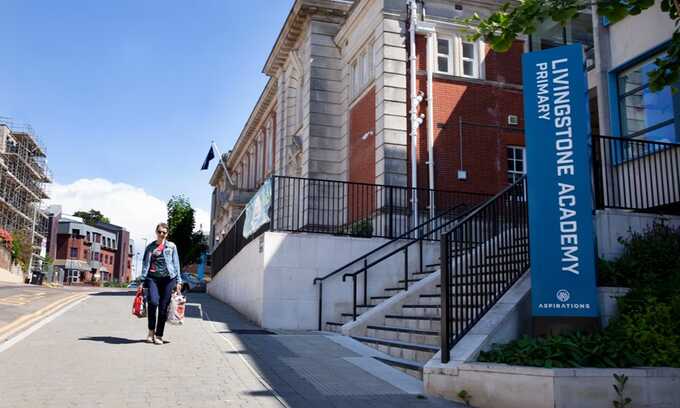Flagship free school costing £35m closes due to lack of pupils

Government funded Parkfield, in Dorset, after ‘unbelievable’ lack of due diligence, says expert
One of the government’s vaunted free schools, whose site was beset with so many problems it is estimated to have cost £35m, is set to close, having failed to attract enough pupils.
Free schools were launched by Michael Gove in 2010, when he was education secretary, with the promise that they would close the attainment gap in England.
Groups of teachers, parents and charities were allowed to start schools in old offices, shops and houses regardless of whether local authorities believed they were needed.
More than 650 are open, with more understood to be looking for premises. In many cases, the costs of opening the school have spiralled upwards.
Latest figures from the Department for Education show five free schools cost more than £30m each, while the National Audit Office found 24 free school sites had cost over £10m each.
Experts say there may be more shocks to come, because the government has taken years to reveal the capital costs of some free schools and has failed to publish any data on capital costs for more than four years.
Tim Warneford, a consultant who advises academies on their buildings, said: “There has long been a suspicion that the free school policy resulted in fire sales without sufficient due diligence.”
Parkfield school, which was built on an old air traffic control site next to the runway at Bournemouth airport, is estimated to have cost £35m. Reach South, the academy trust that runs the school, told parents last week that it had “exhausted all possible avenues of making Parkfield viable”, and the DfE had agreed it would close for most pupils when this term ended. The letter said the school, which runs from primary through to secondary, was “less than half full” and had “no natural catchment area”.
Joanna Howard, the Labour candidate for Christchurch where the school is based, said: “There has been little notice and parents and carers now have the additional worry of trying to find a new school for the start of term in September.”
The government’s Education Funding Agency bought this site, with what Warneford describes as an “unbelievable” absence of “standard” due diligence, on the basis of a four-page vendor’s report.
Detailed surveys were not carried out until after purchase, and building work was delayed by years as they uncovered a catalogue of obstacles, including asbestos, a colony of protected bats and drainage issues. There was even the potential threat of unexploded bombs from the second world war, although the DfE said the site was “as safe as any in the south of England”.
In the four years it took to open the site, pupils were taught in an old office block in central Bournemouth and parents “withdrew their children in large numbers”, according to papers from a trust board meeting. When the school finally opened, the fact it was so far out of town proved a major problem. The school spent £90,000 a year transporting pupils, and the trust noted that “understandably not many parents are comfortable sending their four-year-old to school on the bus”. Total costs are believed to have reached £35m.
Andy Jolley, a schools campaigner who has been investigating asbestos in schools and shared documents on Parkfield with the Observer, said: “Opening a school right by an airport with no easy access was always going to be a disaster, yet they kept on pouring money into it.”
Parkfield was also affected by the DfE’s decision to approve a second primary free school, Livingstone Academy, in the city centre.
That opened last year, although the police and neighbours raised objections to the conversion of the former magistrates’ court into a school, because it was housed between a probation centre, where convicted criminals were required to go to register, and a strip club.
The government has said its latest wave of 15 planned free schools have been approved “where there is the greatest need for good new places”.
The DfE was approached for comment.
Read more similar news:
Comments:
comments powered by Disqus

































